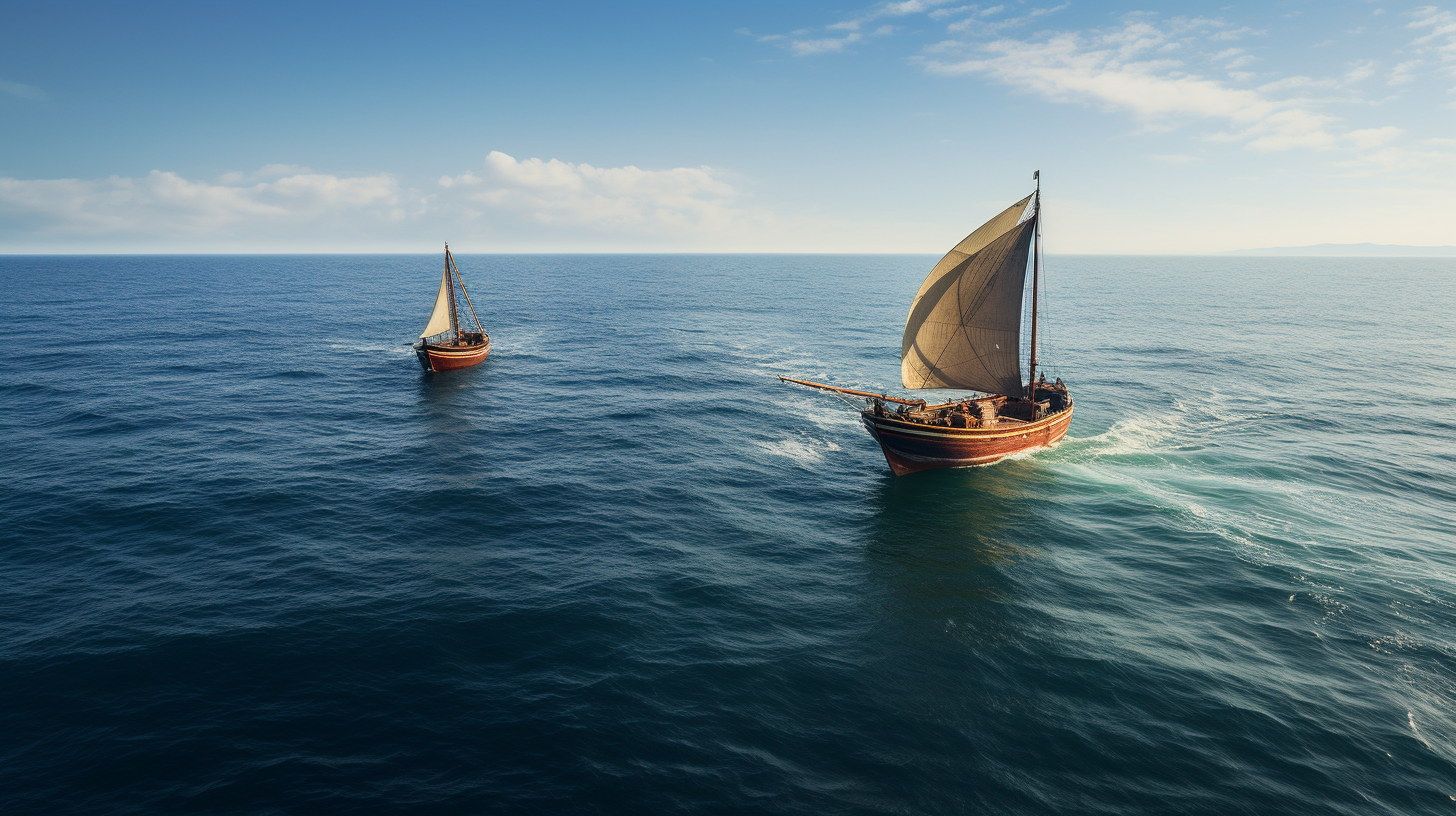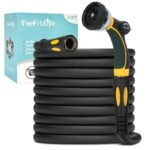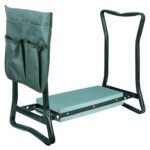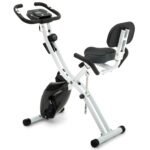Passing a fishing boat on the water requires careful navigation and respect for the fishermen’s work. As an avid boater with a deep appreciation for the freedom that comes with being on the open water, I understand the importance of promoting a harmonious coexistence between recreational boaters and those who make their living through fishing.
In this article, I will provide you with essential guidelines on how to pass a fishing boat safely and responsibly, ensuring a pleasant experience for both parties involved.
When approaching a fishing boat, the first and foremost rule is to maintain a safe distance. This not only ensures the safety of both vessels but also respects the fishermen’s workspace. By keeping a reasonable distance, you allow them to carry out their work without any interference.
Additionally, reducing your speed while passing is crucial. Slowing down not only reduces the risk of collision but also minimizes the wake your boat creates, which can disturb the fishing boat and potentially disrupt their catch.
By following these simple guidelines, we can ensure a smooth and respectful passage when encountering a fishing boat on the water.
1. Maintain a Safe Distance from the Fishing Boat
When passing a fishing boat, make sure you maintain a safe distance to keep both you and the fishermen safe. It’s important to interact respectfully with fishing boats on the water. Fishermen rely on their boats to make a living, and interfering with their operations can not only disrupt their livelihood but also put their safety at risk.
By maintaining a safe distance, you allow them to work undisturbed while ensuring your own safety as well.
Read More OutdoorGoodness Articles
Additionally, it’s crucial to follow fishing regulations when passing a fishing boat. These regulations are in place to protect the marine environment and ensure sustainable fishing practices. By adhering to these rules, you contribute to the preservation of the ecosystem and support the fishing industry in a responsible manner.
In order to reduce your speed while passing, it’s important to be aware of your surroundings and adjust accordingly. By slowing down when approaching a fishing boat, you allow yourself more time to assess the situation and make any necessary adjustments to avoid any potential hazards.
This not only ensures the safety of the fishermen but also allows for a smoother and more seamless passing experience.
So remember, when passing a fishing boat, maintain a safe distance, interact respectfully, and follow fishing regulations. By doing so, you can enjoy your time on the water while promoting a sense of freedom and responsibility for both yourself and others.
2. Reduce Your Speed while Passing
As you approach that vessel, slow down and savor the leisurely pace of your voyage, for it would be unwise to rush past such a serene floating oasis. Reduce your speed while passing a fishing boat to ensure a safe and enjoyable experience for both parties involved.
By following boating regulations and adhering to these guidelines, you can avoid collisions and maintain a respectful distance from the fishing boat.
To pass a fishing boat safely, here are three important steps to keep in mind:
- Assess the situation: Before you decide to pass the fishing boat, carefully observe its course and speed. Ensure that there is enough space for you to maneuver safely and maintain a comfortable distance. Avoid passing if the boat is actively fishing or displaying any signals indicating restricted movement.
- Communicate your intentions: Use proper boating etiquette and make your intentions clear to the fishing boat’s captain. Signal your intention to pass by using the appropriate navigational signals, such as a single prolonged blast on your horn or a series of short blasts. Maintain visual contact with the fishing boat and be prepared to adjust your course if necessary.
- Maintain a safe distance: While passing, keep a reasonable distance from the fishing boat to avoid any potential accidents or disturbance to their fishing activities. Follow the recommended guidelines, which typically advise staying at least 100 feet away from the fishing boat, and adjust your speed accordingly to maintain a safe distance.
By reducing your speed and following these boating regulations, you can pass a fishing boat safely and avoid collisions.
Now, let’s transition to the next section and discuss how to avoid creating excessive wake while passing a fishing boat.
3. Avoid Creating Excessive Wake
To ensure a serene and respectful experience for all, it is crucial to be mindful of minimizing the disruption caused by excessive wake while passing a fishing boat. Excessive wake can create unnecessary noise pollution and disturb the peaceful environment that both the fishermen and other boaters seek.
By reducing the wake created, you not only show consideration for others but also minimize the potential negative impact on marine life and the fishing activity itself.
When passing a fishing boat, it is important to be aware of any fishing lines that may be in the water. These lines can extend far from the boat and may not always be visible on the surface. By keeping a safe distance and maintaining a slow speed, you can minimize the risk of entangling or damaging the fishing lines.
Additionally, it is advisable to avoid sudden maneuvers or changes in direction, as this may startle the fishermen and potentially disrupt their work.
To emphasize the importance of minimizing excessive wake and being aware of fishing lines, consider the following table:
| Tips to Minimize Disruption |
|---|
| Slow down when passing a fishing boat |
| Keep a safe distance from the boat |
| Avoid sudden maneuvers or changes in direction |
| Be mindful of fishing lines in the water |
| Minimize noise pollution |
By following these guidelines, we can create a more harmonious environment while passing a fishing boat. Respecting the fishermen’s work and being considerate of their surroundings ensures a positive experience for everyone involved.
4. Respect the Fishermen’s Work
Respecting the hard work of the fishermen is essential if we want to create a harmonious and enjoyable boating experience. Understanding fishing techniques is crucial in this regard.
Fishermen spend countless hours honing their skills, learning about the behavior of different fish species, and mastering various fishing methods. By understanding their techniques, we can better navigate around fishing boats and avoid disrupting their work.
To promote a harmonious coexistence on the water, it is important to recognize and appreciate the hard work of fishermen. By understanding their fishing techniques and supporting sustainable practices, we can create an environment where both boaters and fishermen can enjoy their respective activities without conflict or disruption.
5. Promote a Harmonious Coexistence on the Water
Create a peaceful and enjoyable boating experience by fostering a harmonious coexistence on the water. One important aspect of this is water safety. It’s crucial to be aware of your surroundings and follow all safety regulations.
Always keep a safe distance from other boats, especially fishing boats. They may have large nets or lines in the water, and getting too close can be dangerous for both parties. Additionally, be mindful of your speed and the wake you create. Excessive speed or large wakes can disrupt the fishing activities and create an unsafe environment.
By practicing responsible boating and prioritizing water safety, we can promote a harmonious coexistence and ensure everyone’s well-being on the water.
Effective communication is another key element in promoting a harmonious coexistence on the water. Learn and understand the various communication signals used by fishermen and other boaters. These signals can convey important messages and help avoid misunderstandings or accidents.
For example, if a fishing boat is actively fishing, they may display a flag or use hand signals to indicate their intentions. It’s essential to respect and respond to these signals appropriately.
Additionally, maintaining open and clear communication with other boaters can prevent conflicts and ensure a smooth and enjoyable boating experience.
Using marine radios or other communication devices can be helpful in coordinating movements and sharing information with fellow boaters. By being knowledgeable about communication signals and practicing effective communication, we can foster a harmonious coexistence on the water and create a positive boating environment for all.
Frequently Asked Questions
Can I pass a fishing boat at full speed?
Passing a fishing boat at full speed is not recommended. It is important to prioritize safety when passing any vessel. Slow down, maintain a safe distance, and communicate your intentions to ensure a smooth and secure maneuver.
What should I do if I accidentally create a large wake while passing a fishing boat?
If I accidentally create a large wake while passing a fishing boat, I should immediately reduce my speed to minimize the impact. If the fishing boat is not displaying any navigation lights, I should proceed with caution and give them a wide berth.
Are there any specific rules or guidelines for passing a fishing boat at night?
When passing a fishing boat at night, it is important to prioritize nighttime visibility and safety precautions. Ensure your boat is well-lit, reduce speed, maintain a safe distance, and be vigilant for any signals or obstacles.
Is it okay to pass a fishing boat on the same side as another passing boat?
It is not recommended to pass a fishing boat on the same side as another passing boat. To ensure safety, maintain a safe distance from the fishing boat and communicate with the crew to avoid any potential accidents.
What are the consequences of not maintaining a safe distance from a fishing boat?
Not maintaining a safe distance from a fishing boat can have serious consequences. It’s important to keep a safe distance to avoid collisions and entanglement. Neglecting this can lead to accidents and endanger both the fishing boat and your own vessel.
Conclusion
In conclusion, it’s essential to approach and pass a fishing boat with caution and respect.
By maintaining a safe distance, reducing your speed, and avoiding excessive wake, you not only ensure the safety of the fishermen but also promote a harmonious coexistence on the water.
Remember, these individuals are working diligently to provide for their families and contribute to the economy.
So, as you approach a fishing boat, let the suspense of their endeavors captivate you, and let it guide your actions. By doing so, you not only demonstrate your understanding of their craft but also contribute to the preservation of a delicate ecosystem.

Meet Kevin Goodell, your outdoor adventure coach! With a passion for nature ignited in childhood, Kevin brings a wealth of experience and expertise to simplify tough outdoor skills. As a U.S. Army veteran and former Sergeant, he has honed his leadership and teamwork abilities while developing a deep love for the great outdoors.
Kevin’s dedication to outdoor activities spans biking, birdwatching, national park trips, and archery/golf. With his friendly and approachable demeanor, he is committed to guiding individuals of all ages and skill levels towards unforgettable outdoor experiences.
Harnessing his extensive knowledge and personal achievements, Kevin is your go-to resource for learning and enjoying various outdoor pursuits. Whether you seek thrilling adventures or serene nature escapes, Kevin’s professional yet friendly approach will ensure an engaging and informative experience. Embark on your next outdoor adventure with Kevin Goodell and embrace the beauty of nature like never before.






